This episode of Oats for Breakfast Podcast interviews journalist and filmmaker Paul Jay.
Paul discusses why a second Trump term would be significantly more dangerous than previous Republican presidencies, including Trump’s first term in office. He also talks about what it might take, over the long term, to beat back the advances that the far-right has been making in the U.S. and Canada.
Umair Muhammad
Hi everyone. You’re tuning in to Oats for Breakfast. I’m your host, Umair Muhammad. This episode features an interview with Paul Jay. Paul is a journalist and filmmaker. I’m sure many of our listeners will know of his work. With someone like him who’s had a wide-ranging career, it’s hard to summarize their contributions in a short intro like this. So perhaps I’ll just say that he currently serves as the editor of theAnalysis.news website. You can find his interviews, commentary, and essays on that website. You can also subscribe to theAnalysis.news podcast. Since you know you’re listening to a podcast right now, you may as well subscribe to that one, too.
I interviewed Paul about a recent essay of his titled Trump’s Unholy Alliance: Risking the Apocalypse for Dollars. In the essay, Paul looks at the two major polls of support that Trump’s current run for the presidency has been based on. Those two polls being Silicon Valley tech billionaires on the one hand and Christian nationalists on the other. Much of our discussion focused on why a second Trump term would be qualitatively different and more dangerous than previous Republican presidencies, including Trump’s first term in office.
In the later parts of the discussion, we went on to talk about a few other things, including what it might take over the long term to beat back the advances that the far right has been making in the U.S. and Canada. All right, with that, let’s transition to the interview.
Your essay, one of the first things that came to mind, and of course, the title refers to the coming together of tech billionaires and Christian extremists around Trump as an unholy alliance. I was thinking that the Republican Party has long relied on similar coalitions of religious conservatives on the one hand and the ultra-wealthy on the other. It got me wondering whether there’s something qualitatively different about the coalition that’s supporting Trump. In other words, is what’s happening now an intensified version of past alliances, or does it represent a meaningful shift in the Republican Party strategy?
Paul Jay
Well, both in a way. Certainly, the modern form of this alliance with Christian nationalism and far-right forces garbed in Christian clothing was forged to a large extent by Reagan and Trump; even what’s his name, [Roy] Cohn, who advised Reagan, advised Trump in this kind of playbook.
The strategy of an alliance between essentially fossil fuel, the military-industrial complex, and the kind of Christian right, Reagan is the one that kind of developed it in a modern sense. It goes back right from the beginning. The slave owners justified slavery within Christian frameworks and dehumanized slaves. How they get their head around the message of Jesus and defending slavery is, I guess, people can talk themselves into anything.
I’m going to ramble here, but there are two kinds of Christianities in my mind. There’s the Christianity of Jesus, which is the message of love and compassion, which, to a large extent, comes out of the Old Testament. But the justice, love, and compassion talked about by Jesus extends to everyone. Whereas in the Old Testament, I’m no expert in these things, but based on people I’ve read and such, it’s more about the attitude of Jews towards Jews.
As I say, I’m rambling. I’ll get back to Trump eventually. There’s a very interesting essay by [Friedrich] Engels called The Modern History of Christianity. In that he talks about, it’s actually a lecture to European socialists against sectarianism. He says European socialists should stop fighting with each other over all kinds of secondary ideological and theoretical questions and really build a united front for struggle. He says to learn from the early Christians. He says the early Christian movement essentially was a Jewish rebellion against the Roman Empire who came to understand that they couldn’t do it on their own; it couldn’t just be Jews. They broadened the appeal of the movement so that you didn’t have to be a Jew to join. All you had to do was dunk your head in some water and say I’m with you, and, in practice, actually be with the resistance movement, this new revolutionary movement that has come to be known as the movement led by Jesus. Whatever, it’s good enough to understand it.
It took this message of justice, compassion, and love your enemy, which are concepts in the Old Testament, but extended it to non-Jews to create a broad-based revolutionary movement around these concepts.
Now, later, as probably most people know who follow your podcast, eventually, for a bunch of reasons, Christianity becomes the state religion. As it does so, it loses this revolutionary character and, in fact, becomes its opposite. It becomes an ideology essentially to justify the divine right of kings and justify oppression still within the name of Jesus, in the name of Christianity. In short, you have a Christianity of the Crusades, which marches off to slaughter people, conquer Jerusalem, fight the Muslims, and is used by the European aristocracy to plunder and pillage in the name of Christianity. You have the Christianity of the Crusades, and you have the Jesus of love and compassion.
The Christianity of the Crusades has been a trend within American politics from day one because the American elites were essentially British elites. The British aristocracy was all in on the Crusades, so they brought that whole mentality with them, including a slave system that lasted longer than the British wanted slavery. You could say, in some ways, the roots of the far right in the United States come right from that early division of the slave system versus the rising modern capitalist and financial capitalist from the very early days system.
Now, right in the beginning, there was a trend within the American elites right at the time of the American Revolution. The most outspoken person in this trend was Alexander Hamilton, who openly fought for and advocated for what more or less amounted to an American monarchy. He quite openly did not trust the mob, the rabble, and the idea of having popular elections that he thought would give rise to chaos. Of course, when they say chaos, they mean a threat to the political power and ownership of the elites. He lost that fight to Jefferson and some of the others who wanted a more or less full democracy, although in the beginning, it was still only landowners, and they had this electoral college they developed. They developed various kinds of mechanisms to make sure popular democracy didn’t really assert itself. They had measures to stop it.
This fight within the rising industrial capitalist class, between those who had their cultural, ideological roots with the slave owners, even in the industrial capitalist class, that ideology was certainly present and that certainly in the finance sector they were very involved in the slave system. Wall Street made a ton of money out of slavery. It wasn’t like there was this big wall between slave owners and finance. But there was a split. To make a long story short, that split has continued to this day. It takes different forms, but one of the forms is about just how intensely should capital exploit labor.
I’m jumping way ahead now, and there are people who know these stories better than I do. At any rate, as things evolved, the Democratic Party, mostly because of FDR, became a party that looked at things more systemically. How do you defend the capitalist system? Especially in the depths of the depression in the ’30s, FDR and people like him, like [Henry] Wallace, who became his Vice President and others could see that the rapacious unmitigated capitalism of the late 19th and early 20th centuries and the rise to dominance of the banks and the finance sector had led to this massive crash in ’29-’30. Those people who led to the crash, who profited from the lead up to the crash, the ones that didn’t get wiped out because some of them got wiped out too, they loved those days. Those were the good old days.
Jumping ahead now, if you look at what Trump is, is it qualitatively different? Maybe not. There is something specific, and I’ll try to get into it. I’m doing another video now based on the article you’re mentioning. I’m digging more into Peter Thiel, Vance, and Steve Bannon. They represent an Alexander Hamilton view of how the United States should be governed. In other words, they don’t really want a representative democracy. They don’t like that they’re losing to a section of the elite who they think is pandering to the working class in a way they don’t have to. They think that the level of exploitation can be far more intense. In other words, you can smash unions, even perhaps get to a point where you can practically illegalize them or fully co-opt them. They think that you can more or less erode public education to a point where you get people who are only functional. In fact, they’re getting close to that and have no understanding of the history of the world at all.
The Christianity that they’re dressing it all up in is a more virulent form of the Christianity that a Reagan would have adopted for himself, at least, and, certainly, the old guard of the Republican Party who also called themselves Christians and went to church. Who knows what they believe? Let’s give them the benefit of the doubt. But they believed in a more traditional kind of version of Christianity. Yes, the Christianity of the Crusades, and they can justify invading Iraq and give it some Christian rationalization.
This specific Christian nationalism now is an alliance of a far-right Catholic Opus Dei, Knights of Malta, this version of it, in alliance with evangelical nationalism, Christian nationalism, it’s a more putrid form. It’s a more dangerous form. Is it qualitatively more dangerous? We’ll see. If they do what they say they’re planning to do, then domestically, it will be essentially the end of unions.
When Trump says, and I quote, this in the article, “My dear Christians, in four years you won’t have to vote again,” I don’t think he’s joking. It is what they want.
I’ve been reading Peter Thiel, who’s the billionaire, one of the PayPal mafia and one of the main guys that’s backing Trump, especially backing Vance. He’s probably the one who pushed or forced Trump to take Vance as the Vice President. He has a company called Palantir, which is very involved in the militarization of AI. Steve Bannon is very connected to this far-right Opus Dei. A guy named Leonardo Leonard, who’s a guy who leads the Federalist Society and helped get the far right into control of the Supreme Court.
Here’s the difference between the Trumpian crowd. Trump himself, I’ve called him the buffoon tip of a fascist spear. The forces around him financing him are the real dangerous ones. I think Trump is a mechanism, a vehicle for them, and if he doesn’t do what he’s told, that is why Vance is there. They do not think an electoral representative government is necessary if it doesn’t come out in their interest and if they don’t win. It is as simple as that.
Why do I think that? Not just because of some quote from Trump. Not because of the kind of stuff Peter Thiel says where he says; what’s his quote? “I think modern capitalism and democracy are no longer compatible.” That’s an actual quote from Peter Thiel, who’s very, very influential on the right. He’s not just some billionaire. He’s written essays about this that are taken very seriously by the far right and are quite influential. He’s like this techno philosopher king.
Umair Muhammad
The quote from Trump, you mentioned it briefly, but to read it out a little more fully is, “In four years you don’t have to vote again. We’ll have it fixed, so good. You’re not going to have to vote.”
Paul Jay
Yeah, it starts with, he’s making a speech to some Christian organization and starts by saying, “My dear Christians, I love you, my Christians. I’m a Christian. Christians, you won’t have to vote again in four years. Just do it this time, and we’ll have it fixed by then.” I don’t think that’s just a raving. The reason I think it’s not just a raving and not just because somebody like a Peter Thiel talks about it quite openly. It’s interesting, Mark Cuban; Americans know who he is; I suppose Canadians do. He’s the billionaire on Shark Tank. Up until recently, he owned the Dallas Mavericks, and he was another techie billionaire. He’s a more social liberal and supports the Democrats, but he knows all these guys. He says what they want is U.S.A. Inc. That they literally, not figuratively, want to turn the United States into essentially a corporation where everyone can buy shares. Of course, the more money you have, the more shares you can buy. The big shareholders, which obviously will be the billionaires, they’ll form the board of directors and they’ll essentially hire a CEO they’re going to call president. That’s very close to what Alexander Hamilton wanted back at the time of the American Revolution. It’s kind of what the far right right has wanted for a long time.
Let me just back up a step before I get into why I think this is not just a bunch of rhetoric or Trump’s craziness, although it’s partly crazy, but not just rhetoric. I don’t have a full handle on this, but I think one does need to understand the split between the Trumpian forces and the Dick Cheney forces. Cheney recently came out and endorsed Harris and said he’s going to vote for Harris. So did his daughter. There has been a very deep split in the Republican Party, at least that I’m aware of, and again, I’m not an expert, but I’m aware of it from at least 2000 and a deep split between the Christian right and the Cheneyesque type old style military-industrial complex capitalists.
There is an interesting book that came out just after the Iraq war. The guy that runs this thing called the Judicial Watch, I think it’s called. I have the book here. I forget his name, but he’s a far-right, very, very well-funded organization that sues everybody left and right.
Let’s get back to your question. Is it qualitatively new? I think it’s qualitatively new in the sense that the Trumpian forces are willing to cross a line that the Cheney, Bush, certainly the more traditional Republicans, prior to them, people like [Mitch] McConnell and others kissing Trump’s rear. Prior to that, what was the Republican Party, they thought it was in their interest to maintain the institutions of American democracy. That kind of state, they thought it shouldn’t be undermined, that it served their interests, even if they lost power every few years to the Democrats because the Democrats they knew were not going to fundamentally change the capitalist model and the kind of reforms the Democrats would come up– now I’m talking after FDR because the New Deal, they hate it. So did sections of the Democratic Party hate the New Deal and the current leadership of the Democratic Party, you know, certainly from Clinton on, you may even say from Truman on, maybe, but certainly from Clinton on, they hated the reforms of the New Deal and started unraveling them, including even basic banking regulations and things like that, i.e., Glass–Steagall and so on.
The fight there is a fight over does the far right essentially impose a Mussolini-style model of a real corporate Mussolini-style way fascist state, not the concentration camps of Hitler and so on. Who knows where it might lead, but in the more classical understanding of what a corporate fascist state is, where the state is just directly beholden to corporations, and the leader is like a corporate CEO; it is a dictator. In the Mussolini-style, I don’t know how much he was beholden to Italian big capital. In the American model, it’s what Mark Cuban says and what Alexander Hamilton wanted. They want the biggest of the billionaires to be able to tell the president what to do. As long as he does it, according to Hamilton, he should be president for life. Now, that’s what Hamilton advocated. He lost the debate.
The recent Supreme Court decision that makes the president immune from prosecution in office, everybody was saying, I thought we had a revolution against having a king. It’s a step in that direction for the Supreme Court to say that you cannot be criminally prosecuted.
In other words, if the Republicans and Trump get control of the Senate and, or the House, meaning he can’t be impeached and he can’t be charged by the Justice Department because he’s immune from prosecution, if they can find any way to say what he’s doing is part of his job and within the capacity of being president, which even could mean killing somebody, now, you’ve got essentially a king. If that king is beholden to Musk, Peter Thiel, and his Silicon Valley crowd, now you have the Alexander Hamilton model of government. So that is different.
What’s the evidence that they might actually go there? Well, the lead ups to the event of January 6, the storming of Capitol Hill, shows that they are willing to go there and tried to go there and failed. It’s not what happened on the Hill that day, which is all “they,” the media, even the congressional committee that investigated the events of January 6, that’s all they want to focus on. Why? Because they don’t want people to see how close the United States came to an actual military coup. They don’t want the world to think that the United States was on the edge of being a banana republic. It’s not good for business.
What’s the evidence? Well, on January 4, now, people who follow my stuff have heard me go on about this, but maybe not for a while. On January 4, some very interesting things happened. Ten former secretaries of defense issued a public letter in the Washington Post warning the American military to stay out of the election results. This is two days before the storming of Capitol Hill. In it, they specifically say any individual in the armed forces that gets involved in this will be subject to criminal prosecution. It’s a very strong statement that you do not make unless you’re afraid of something happening. They’re not just afraid of some people showing up on the [January] 6 and running around Capitol Hill. I’ll get to that.
The same day, Admiral [James] Stavridis, who was the former supreme commander of NATO, wrote an article in Time magazine supporting the letter from the 10 former secretaries, supporting their call that the military should stay out of it. He specifically warns that the acting Secretary of Defense doesn’t have the spine to stand up to Trump. He says there are elements within the army that may have to be purged. He warns essentially of the army intervening in the election. There’s only one way to intervene at that point, which is what’s supposed to happen on January 6, which is Pence is supposed to confirm the Electoral College.
The same day, the Financial Times has an editorial on January 4, two days before all this happens on the Hill. The Financial Times editorial ends with a paragraph that says, “As strange as it seems,” I can’t remember the exact quote, but it’s practically exact. “As strange or bizarre as it seems, a coup is in progress in the United States.” That’s an editorial from the Financial Times on January 4, two days before the shit hits the fan on the Hill. Then the Hills breached by the [January] 6.
[Mark] Milley, the Chairman of the Joint Chiefs and the head of the army have issued statements again around [January] 4, maybe a little bit before. I can’t remember the exact date, but right around the same day, they warned the armed forces to stay out of this.
Anyway, let’s jump ahead. The coup fails. The army doesn’t get called in. That was the other plan. There would be such a shit show on the Hill; it would be an excuse for the army to intervene and declare martial law. Later, the full plan actually comes out. This did come out during the congressional hearing investigating January 6. The full plan was there was a group meeting in a hotel near the White House, including Steve Bannon and other Trump senior lieutenants trying to figure out (this is in the lead-up to January 6), how to figure out how to stop the transition of power. Of course, the key to that was Pence not certifying. It wasn’t the only thing. It included Trump phoning the Secretary of State of Georgia trying to find votes and included other attempts to intimidate state legislatures and state secretaries to overturn their Electoral College. They had a whole whack of phony Electoral College voters they were trying to certify or recognize. Some of those people have now been charged with crimes.
In the lead-up to [January] 4, there was an actual PowerPoint that had been commissioned by some of the people in that working group meeting at the hotel that was presented to Mark Meadows. In the PowerPoint, it actually laid out how the army was going to declare martial law in some of the key swing states, states with very close votes, seize the ballot boxes, and declare there had to be a new vote. Thus, Pence wouldn’t certify, and Trump would stay as president until there was a new vote in these states, which they would find ways to manipulate.
According to Meadows, who was Trump’s Chief of Staff, as I just said, the PowerPoint– he testifies to this. Everything I’m saying is on the public record. There’s not a single sentence I have uttered that isn’t actually in the mainstream press and or the record of the congressional investigation. He doesn’t act on the PowerPoint. He says he thought it was stupid. He didn’t take it seriously. Maybe he didn’t, but clearly now the only logical conclusion is the 10 former secretaries who, by the way, were organized by Dick and Liz Cheney; that’s who got that letter together. Again, everything I’m saying has been in the press, but they all want to pretend it wasn’t. Nobody talks about it now. They got wind of the PowerPoint. They got wind of the plan. They got wind of how this mechanism was supposed to actually work, the seizing of the ballot boxes, the shit show on the Hill. That is a whole other story: why the National Guard wasn’t called in earlier when the chief of the police of Capitol Hill was pleading for it and Mitch McConnell wouldn’t call it in. Anyway, the short of it is yes, there’s a qualitative difference. It doesn’t matter about an ideological qualitative difference. It’s not about rhetorical qualitative difference. They actually tried to organize a military coup to stop the Democrats from coming to power. I think that is a big difference from previous Republicans. Although it’s not the first time there was an attempted coup in the United States, which we can go into because there was an attempted coup in 1934 to try to overthrow FDR.
Umair Muhammad
I guess you’d say that maybe it was a bumbling sort of effort on their part, but they’ll do a better job next time.
Paul Jay
The guy who was at least one of the leaders of this was Flynn, who was a National Security Advisor, I believe, for Trump. Then he got involved in this scandal with the Russians. He met with some Russian ambassador and got charged, and Trump pardoned him. Well, Flynn emerged as one of the main leaders of the Christian nationalist movement. He goes around and does like these old-style tent shows where he speaks to big crowds of Christian nationalists in the most absolute overtly racist, xenophobic way. He makes J.D. Vance look reasonable.
Flynn is absolutely not alone in the military. His brother and apparently the whole Flynn family are on the same page in terms of their religious Christian nationalism. Flynn’s brother is still head of Pacific Command for one of the services.
There’s an organization called the Military Religious Freedom Foundation. It’s run by a guy named Mikey Weinstein, and they fight to prevent or oppose far-right Catholic, evangelical, or any religion pressuring soldiers into joining and recruiting in the military, and they fight for separation of church and state in the military. On their board are people like Larry Wilkerson. People probably know former Ambassador Joe Wilson was on the board. I think a serious group who [were on the board]. Weinstein himself, who used to be in the Air Force, went to the Air Academy. They have thousands of active duty soldiers that are, if not members, are interacting with them. They make complaints. Over and over and over again, you have people in command holding evangelical services in the military, ordering soldiers they have to go. If you don’t play along, you don’t get promoted, and you might even be punished.
Weinstein thinks as much as 30% of the American military is now organized into Christian nationalist groups, organizations of some sort or another. It goes up very, very high in the command. Now, clearly, Joint Chief of Staff Milley wasn’t, and the head of the army wasn’t. Trump won’t make that mistake again. He will not allow people at the top echelons not to be the kind of people that Flynn is. There seem to be plenty of them to choose from.
Again, I say the brains behind all this, there’s no evidence it’s Trump. If anything, he’s half out of control. There is a real brain trust there. The people who put together Project 2025 who are getting a whole new civil service ready to take power. People like Leonard Leo, I guess, or am I mixing up his name? He constructed the Supreme Court. There’s a thing called the Family. On the far Christian right, there are various organizations. Some of it’s evangelical, some of it’s far-right Catholic, Opus Dei. But some of the people involved are very smart and very good strategists, including Steve Bannon, who, by the way, started this “Stop the Steal” movement back in 2020, in mid-September. Like two months and change before there even was an election. They just thought Trump was likely to lose, and they already had started. In fact, he’s on the Tucker Carlson show announcing the “Stop to Steal” campaign two months before there’s anything to steal.
They will get better and better at their planning. Smarter and smarter people will take more control. Will they succeed? I don’t know. There’s a split in the billionaire class. There’s a split in the financial sector. The other thing that’s changed is Trump one versus Trump two. He has a lot more support in Silicon Valley, and something has developed since 2020. It was there, but it’s not there as much as it is now, which is AI, artificial intelligence, and that whole sector has exploded in size. Nvidia is now a company the size of Apple in no time. The one that’s making the super chip that’s really going to power the next generation of AI. It’s now, I think, valued at 3 trillion or something like that. It’s close to Apple, and Apple is now essentially going to be an AI company. Microsoft is essentially an AI company. All the Big Tech players are now essentially AI companies. They may have a device that they sell, whether it’s a phone or a laptop or something, but it’s secondary.
Where is the real money pit for AI right now? Well, it’s not yet proven that a corporation can rely on AI. It won’t be long, according to Nvidia, where AI management teams will run big companies. It’s not there yet. I know some people are skeptical that it will ever be there, but I think it will. I’m fully convinced it’s not very long before AI is capable of way more than what some of the skeptics are saying.
Where is there a money pit right now? And that’s the Pentagon. They’re all in on AI. They want to AI everything, including nuclear weapons. How much can you spend on AI in the military is a classic how long is a piece of string? Scare the hell out of everybody. The more you have a great threat from Russia, the more you have a threat from China, the more you can justify endless spending, and, of course, on a whole nuclear build-up. They’ve already done that. The nuclear piece of it is already built in and started with Obama.
What’s not built in is a massive expenditure in AI. What does that mean? It’s not just the software, it’s the infrastructure, the amount of energy you need. In fact, Eric Schmidt was on some show the other day saying we better make better friends with Canada because we’re going to need more of their hydroelectric power if we’re planning to build this economy based on AI.
What’s different about Trump one and Trump two is he’s surrounded by maybe half of Silicon Valley. That includes Peter Thiel. As I said, Peter Thiel founded this company, Palantir, which is at the forefront of AI and the militarization of AI. Palantir is already active in the Ukraine war, and that’s one of the reasons why the Americans don’t want the Ukraine war to end. It is a lab for AI warfare and they talk about it so openly. If you look at the defense publications and such, they openly talk about the Ukraine war as the best lab AI could ever dream of. Elon Musk, his Starlink, is showing what’s possible with satellite-based drone warfare. It goes on.
Now, this isn’t to say the Democrats don’t have their own tech billionaires, including even in Palantir, like the guy whose CEO, [Alexander] Karp of Palantir, is a co-founder with Thiel. He supports Harris, but he’s made it very clear that support is conditional on the militarization of AI. Again, publicly in op-eds and newspapers, it’s not like any of this is secret.
Again, yes, I think they’re willing to give up on liberal democratic institutions. This 2.0 version of Trump. Philosophically, Thiel and other people in Silicon Valley openly talk about getting rid of representative democracy. They openly talk about a government of philosopher kings coming from the tech sector. Do I think it’s possible they’ll succeed? Yeah, I do.
Chomsky used to make this point about how few years it took to get from an elective representative government in Germany to a Hitlerite dictatorship without elections. What is it, four or five years? It’s fast. From a country that had a way bigger workers movement and socialist-communist movement, way stronger than Asia.
Umair Muhammad
Well, that might be the thing that’s making it a slow development in the U.S. the fact that there isn’t a workers movement.
Paul Jay
Yeah, well, I agree with that. There’s a side to it that’s that. I think there are two things that are forcing their hand, which is why it won’t be a slow development.
Umair Muhammad
Yeah.
Paul Jay
One, they know climate catastrophe is coming quickly. They’re very aware of it. They absolutely will not do anything to mitigate it or stop it. They’re not going to give up on fossil fuel. They’re going to manage this chaotic world that comes from climate. They figured they were rich enough. Personally, they won’t suffer. They think that eventually, there’ll be a techie solution, and they can let the world go to hell until there is. They’re getting ready. We’ll see where it goes. They’re going to have a big push with nuclear power, thinking that’s the real answer. They don’t think sustainable air, windmills, and solar can do it quickly enough.
I just saw a stat yesterday that is interesting. China’s the only one really pushing solar and windmills. Something like over 60% of wind and solar is coming from China right now. The second thing is they don’t know what the hell to do about China. They’re at this tipping point where if they don’t figure out how to stop “the rise of China,” they won’t be the global hegemon and they may lose control of the global capitalist system. Now I agree with Sam and Leo; that ain’t happening anytime soon. But if things stay on this course, it’s certainly imaginable. At the very least, the Chinese are going to say, “We want a seat at this table. You’re not going to manage global capitalism all on your own. You’re certainly not going to manage it when you start screwing with us with your tariffs and your chip bill. You want to have a green economy supposedly, and then you’re stopping our inexpensive electric vehicles coming in.” There’s a point where the Chinese are going to say, “We appreciate the way the Fed manages global capitalism, but you can’t manage it in a way where you just screw us.”
Now, from the American billionaire chauvinist side, they don’t know what to do because one, if they get into a full-scale trade war with China, which is really all they can do, except, and I’ll get to the except, they’re going to lose access to the Chinese market. As much as the Chinese don’t want to lose access to the American market, vice versa, which market has the most growth potential? Clearly, the Chinese market is. Maybe the actual spending power per person isn’t quite at the American level yet, but boy, it’s close. It’s just a matter of time until the Chinese market is more wealthy than the American market. Maybe not as an average per individual, but it doesn’t matter when you have a billion and a half people.
What do they do? If you antagonize China too much, you lose the market. If you don’t fight back through a trade war, well, then what? China’s already winning in so many places in the globe and they don’t have to send one soldier anywhere. They’re the number one trading partner of Brazil.
I saw a map the other day on who’s whose trading partner. It’s crazy how some of the biggest global economies and their number one trading partner is China. They don’t have to have one aircraft carrier floating around to do it.
The American chauvinist, nationalist, xenophobic, self-centered billionaire elite and the state, which is all imbued with those values for generations of training of, whether it’s training of soldiers or the culture of the politicians and so on, they don’t want a world where they have to share power in a real way.
What do they do? This makes this Trump thing a little more dangerous because his group is willing to provoke China to the maximum. I don’t know whether they would really cross a line and try to start a war over Taiwan, but I think they would arm Taiwan qualitatively more than the Democrats would. I think they would arm Taiwan without restraint, and it would be such a provocation. Does that kind of force China’s hand on Taiwan? Where that leads, I don’t know.
Larry Wilkerson, when he was advising Colin Powell, they used to do these war games. Every war game about a fight over Taiwan went nuclear. They had to stop doing the war games because they can’t win a conventional war against the Chinese. It goes nuclear. I think Trump’s qualitatively more dangerous—long-winded answer.
Umair Muhammad
Thank you. I think you touched on a number of the questions that I was hoping to ask. You went into China, which, in your essay, you didn’t do so much on. I wanted to ask you about that because, obviously, Trump has an obsession with China. Is it okay if we shift to Canada? That’s not something you wrote about in your essay.
Paul Jay
Do you want to just do a quick thing on China, then?
Umair Muhammad
Yeah.
Paul Jay
I would say the Trumpian people’s policy is try to split Russia from China, end the war in Ukraine, although there’s some contradictory forces there because Musk, Thiel, and some others are making a lot of money out of the war in Ukraine. Still, I think the geopolitical strategy is to try to bring the war to an end. See if you can split Russia from China to some extent and then really focus everything on antagonizing things with China.
For Musk, this is okay because Musk is losing the EV battle in China anyway. Musk can’t compete with the Chinese EVs anymore. He’s going to get shoved out of the Chinese market. He can’t compete with the EVs here, either. He’s got to keep Chinese EVs out of Europe and North America. The other thing that’s important to Musk is SpaceX and Xai, his AI company.
Just quickly, what Thiel and Musk want out of a Trump presidency is unrestricted development of AI. No safety curbs and no government oversight. A free-for-all for AI, which, to many of the best of the brains of AI, is an out-and-out existential threat to humanity. I don’t think that’s an exaggeration at all.
Eric Schmidt put it really well. Even though Schmidt himself is a big investor in AI and investor in the militarization of AI, even though he knows he uses that China’s doing it so we have to argument. His warning was that in less than five years, and this is what Nvidia is working on right now, AI agents. For people who use AI, my understanding is every time you get into a chat with an AI, you’re creating an agent that you’re in a relationship with. AI agents will form teams that will run corporations or run military planning and division. One AI agent will be good in physics, another one in marketing, and another one in HR. I’m essentially quoting Eric Schmidt, the guy who was the CEO of Google. This team of AI agents will have a leader of all the AI agents who will be an AI agent. Schmidt says, you can find it on YouTube, Schmidt says that they’re going to start talking to each other at such a speed, human language itself won’t be fast enough. They’re going to have to create their own language. Once they do, humans won’t even know what they’re talking about. Schmidt says at that point, all you can do is, I’m quoting him, “pull the plug.” Well, sure. Nvidia at 3 trillion. Apple at 3 trillion. Microsoft around 3 trillion. All based on AI, and they’re going to pull the plug? I don’t think so. All these guys are now involved in the militarization of AI. They’re going to pull the plug.
Schmidt calls this an existential threat. You combine that with the militarization, and most importantly, in nuclear command and control. We’re in a protocol of launch on warning in the U.S. and Canada, implicitly. So if an AI team says, “Oh, we think A first strike’s coming.” I actually asked this question to Ben Rhodes, who used to advise Obama, and he said this scenario is not far-fetched. Space garbage hits a strategic satellite, AI decides probability. This is the beginning of a first strike from the Russians who took out the satellite to blind us. It’s the beginnings of a first strike against the United States. Mr. President, we’re telling you, launch on warning. This is warning. We think there’s a president that’s going to say no to that?
Umair Muhammad
Right.
Paul Jay
There’s a very simple solution. Get rid of launch on warning. The real solution with the AI is public ownership of AI which we can talk about later, but at the very least, get rid of launch on warning. Anyway, the people around Trump, it’s not to say the Democrats don’t have their own, but it’s not as bad. There are Democrats in Congress that are actually trying to do something as weakly as Democrats in Congress do stuff. The Republicans are just all in on unmitigated, unrestricted, give Silicon Valley everything it wants, AI and militarization of AI.
Umair Muhammad
Well, so I got about 15 minutes. I wonder if we can–
Paul Jay
Yeah, go to Canada.
Umair Muhammad
I don’t know, actually, we probably won’t have time to get in length into that. I wonder if we can go to your thoughts on how to deal with this in the long term. One of the things I have been thinking about is that when Trump lost after the January 6 thing, there was a sense, I think, on the center/center-left type of people that this would take the air out of this whole thing. Trumpism is basically on its way out. Of course, that’s not what happened. The Republican Party has continued to support that kind of politics and continues to go down that road. Whether or not Trump loses I think that this development will continue whether Trump is alive or not, for that matter. It’s not a matter of what’s going to happen this election, but over the long term how is this to be combated in your thinking?
Paul Jay
Well, one, I think it really matters this election. It’s not the end of everything, but it could be a very significant step towards an overt authoritarian, whatever word you want to use, Mussolini style, fascist. I don’t take it unseriously that they might get rid of what we know as elections. It’s not a given, but it’s not a zero risk by any means. It really matters.
I’ve written about this. To me, the underlying cancer is global monopoly capitalism. That’s the underlying cancer. This whole system of ownership is no longer fitting/conducive to human development. It’s going to kill us with climate. It’s going to kill us with pandemics. It might kill us with nuclear war. The financial sector and such, it’s parasitical. Monopoly capitalism is going to doom us. That’s a given. But that underlying cancer, which is defended by the leadership of the Democratic Party, systemically defended, who do see the need for some reforms, who do see the need for not radicalizing the American working class, that do see unions, if you support them in their economic aims, they won’t get too political.
The thing about that section of capital in power, there’s room to organize. You don’t wind up all in baseball stadiums and dropped out of airplanes, which is what happened in Chile and other places in Latin America under American directions. When Trump says, “I want to get rid of the leftist vermin,” which he said, he’s not just talking. It matters who wins this election. It matters a lot. When we talk to people about it, we in the left, we shouldn’t create illusions about who the Democrats are. We should be clear about that. Also, I think it’s far more convincing to people that might vote Trump if they don’t see you as just some flack for the Democrats.
Umair Muhammad
I think it’s important to emphasize that because I know there’s a section of the left that just says, well, you can’t vote in the election because both parties are bad. That’s obviously a silly argument.
Paul Jay
Dangerously naive. Dangerously naive. In the long term, well, first of all, we should be realistic about what’s possible in the U.S. It’s different from what’s possible in Canada compared to what’s possible, say, in Brazil or somewhere.
The problem we have in the U.S. and Canada is there’s so much wealth that in times of crisis they can throw money at the situation, which we saw during the pandemic.
I saw a stat a year or two ago; it’s probably the same now. If you look at the number of families with an income over 100,000 and the number of families in the United States with an income under 25,000, there are more with incomes over 100,000. There are more people living in a relative middle class plus income than there are real poor. You have to think about what that means. That said, the pandemic and general attack on the working class and the supply chain breakdown gave the working class some leverage for a while. Why we, why the left isn’t more organized, I don’t quite get it. Except, we are up against tremendous, much smarter elites and media savvy how to use the media to micromanage different sections of the people and the working class.
If I was younger, I know what I would do, but I’m in my 70s now, and I’m making this film about stopping nuclear war. Other than blabbing like this, there’s not too much I can do. I think I know what should be done, and it needs to be done in Canada and the same way in U.S.
Talk to ordinary people, number one. You have to get around the media. You can’t do it through the media, social media, and all of that. It’s all of some use, but it’s very secondary. The only real thing that works is knocking on doors and talking to people or talking to people you work with and go to school with. The problem with a lot of that, and I’ve talked to quite a few people that do the knocking on doors, for example, in the U.S. I lived in the U.S. until recently. I lived there for a decade. In some ways, I even know more about the American situation. A lot of the people who knock on doors are not trained to talk to people, not in any profound way. I think that applies to a large extent in Canada too. I really think we need a school for door-knockers. I mean that in all seriousness.
The other thing is we have to be able to talk to people with a religious grammar. Now, particularly in the U.S. where a vast majority of people are really quite religious. It’s, I think maybe a little less so here, but I’m not sure what the more recent numbers is, but I would expect the majority of Canadians probably believe in God. In terms of a traditional God, maybe it isn’t quite so dominantly Christian, but whether it’s Christian or not, whether it’s Islam or, I don’t know what other big religions there are here, Judaism is pretty small, but whatever. Christianity is still, I would guess by far the most influential religion. There is a somewhat growing evangelical Christian movement, as I understand it, more so maybe in Western Canada.
I think we have to really figure out a strategy of knocking on doors, really learning how to talk to people about climate. The thing about inflation is driving me nuts when I watch these Democrats over and over again. The Republicans are blaming Biden for inflation. Same thing here. Conservatives are blaming the liberals for inflation because of the money they spent during the pandemic. It’s absolute nonsense.
At the very most, for a very short time, it gave working people a little bit of extra income. It may have had a slight, I think I’ve heard, maybe less than 10% inflation effect on prices going up because it increased demand a little bit. The causes of inflation had to do with the supply chain breakdown and the rise in the price of oil. It had very, very little to do with government spending. In fact in the U.S. it’s interesting, the largest increase in the deficit was under Trump and Trump’s administration ended with only 1.4% inflation. How do you have the biggest deficit practically in history and such a low rate of inflation if it’s about government spending?
Anyway, we need to train people how to understand people’s concerns, talk about these things in a way that they get it, in some depth, and understand how to speak about it, especially to Christians about revolutionary Jesus. Jesus’s message of serving the poor and liberating the oppressed is not the message of the Conservative Party of Canada or the Trumpian party. Without creating illusions about the Liberal Party or the NDP for that matter.
Strategically or tactically I guess you would say if I was in Toronto or Ontario, pick one district provincially and one riding. I guess it’s not district. I keep having to figure out my American Canadian. I’m actually a dual citizen, so I’m inherently confused on these issues. Pick one riding and provincially and or maybe city based because there are different pockets of cities, and try to actually elect somebody. Whether it’s within a party, and you know, I guess it could be, in theory, within the NDP. Not out of the question even to do it in the Liberal Party. Try to take over a local constituency association or riding association. Actually try to elect somebody in one place to actually get somebody.
I know from the U.S., and I believe it’s true here too. The organizing that takes place that has no connection to elections doesn’t go anywhere. It just doesn’t happen because people don’t see how it is actually going to change anything. Just because I say I agree with this or I agree with that or even if I join such and such group and we can get more people to say I agree with this. Political power is at the level of the state, and if you don’t look like you’re actually pointed in that direction. It’s got to be union organizing, community organizing, and all the normal things. It has to have an electoral strategy, I think, and really try to develop practically in the way it was during the civil rights movement where you get youth volunteering to go door to door. They have to be trained really how to talk to people because the way people are hearing what are the answers to their problems is so superficial, banal or just B.S. I think with some clarity and some organization. I don’t know what’s possible in a Canada or U.S. like I say, we’re up against a lot of money and a lot of media power, but maybe some breakthroughs can be made if we throw a lot of force at a specific few ridings and at least get a voice in the legislature and not merge with the kind of NDP politics as usual stuff.
Umair Muhammad
Well, there’s a lot there that I’d love to follow up on, but unfortunately, I have to run. Maybe we can catch up again later. I’d love to ask you more about the religious inflection that you’re talking about. I understand now why that was such a big part of your essay. I hadn’t realized that while I was reading it. I guess just off the top of my head, I just think how do we, as people on the left, do that in a good faith manner? How do I talk about it?
Paul Jay
Well, I say it really straightforwardly. I say, look, I can’t say I’m a believer in Jesus, the son of God. I can’t say I’m a believer in any traditional notion of God, but I sure believe in the values of the revolutionary Jesus.
Umair Muhammad
So having that as a kind of ethical framework. Okay, well, Paul, this has been great and wonderful to finally talk to you as someone who’s influenced me in my thinking for quite a while.
Paul Jay
Happy to do it, happy to do it again.
Umair Muhammad
Thank you so much, Paul. I’ll be in touch.
Podcast: Play in new window | Download | Embed
Subscribe Apple Podcasts | Spotify | Android | iHeartRadio | Blubrry | TuneIn | Deezer | RSS

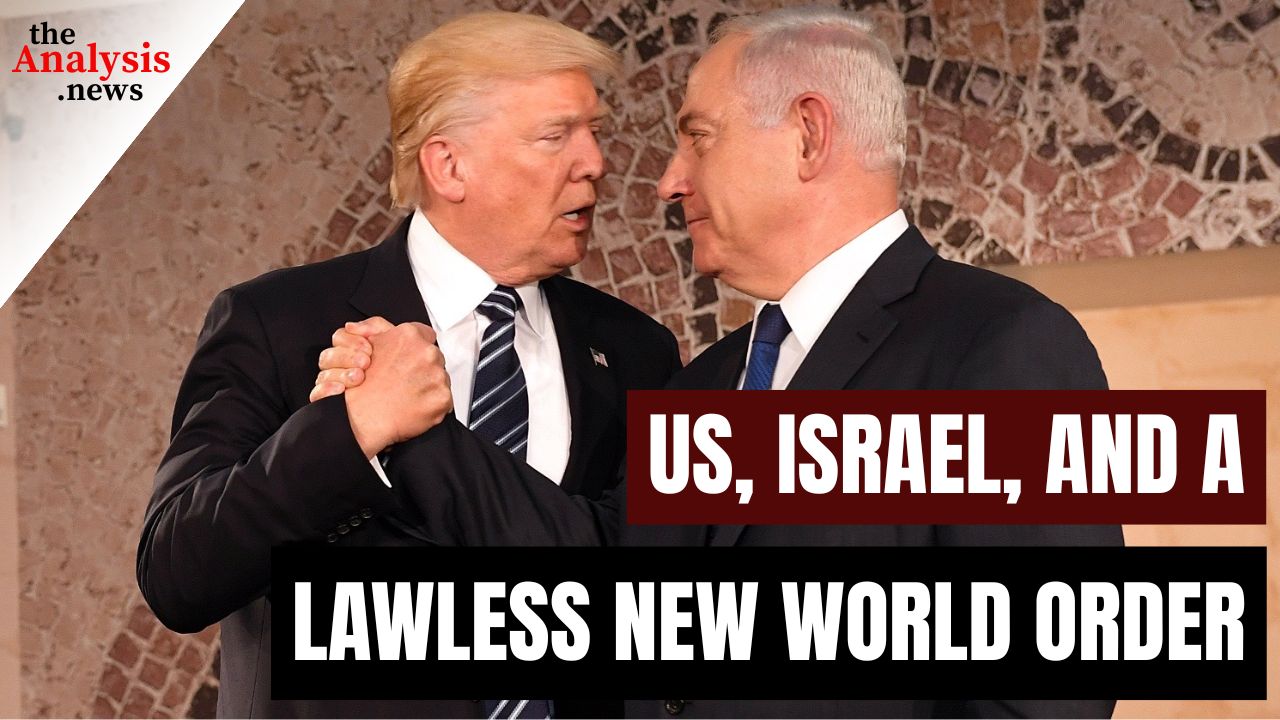
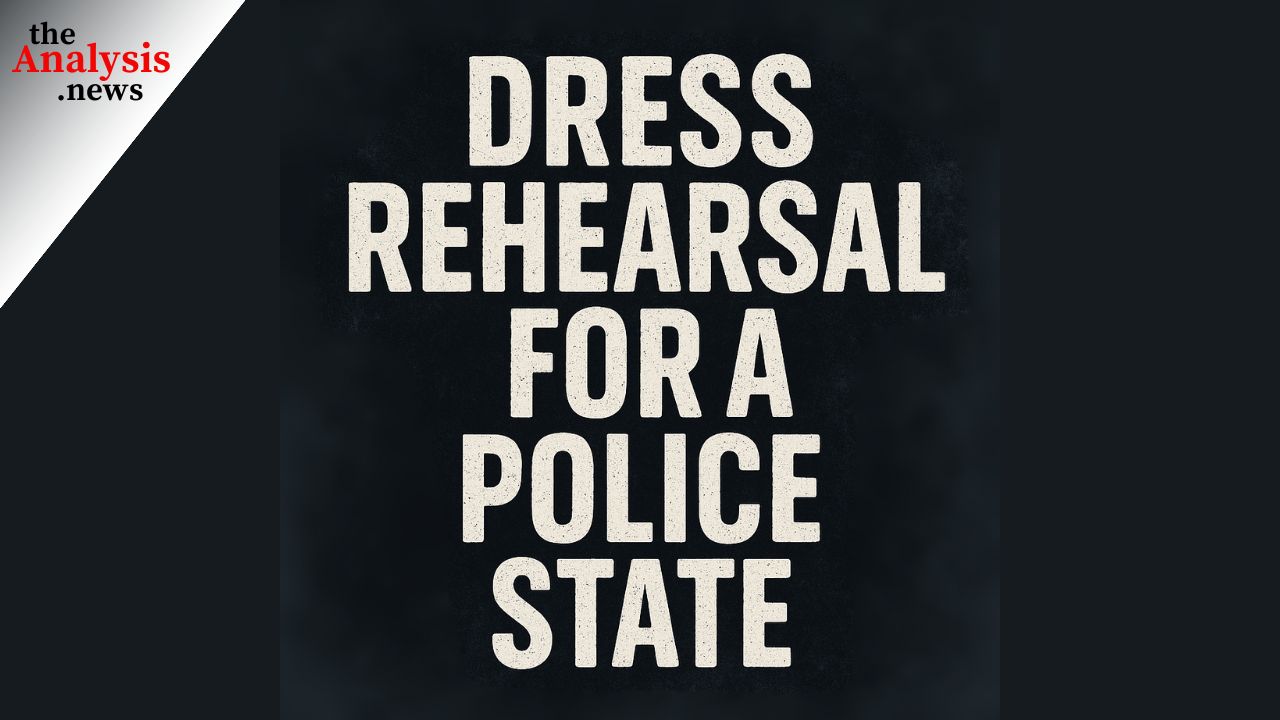

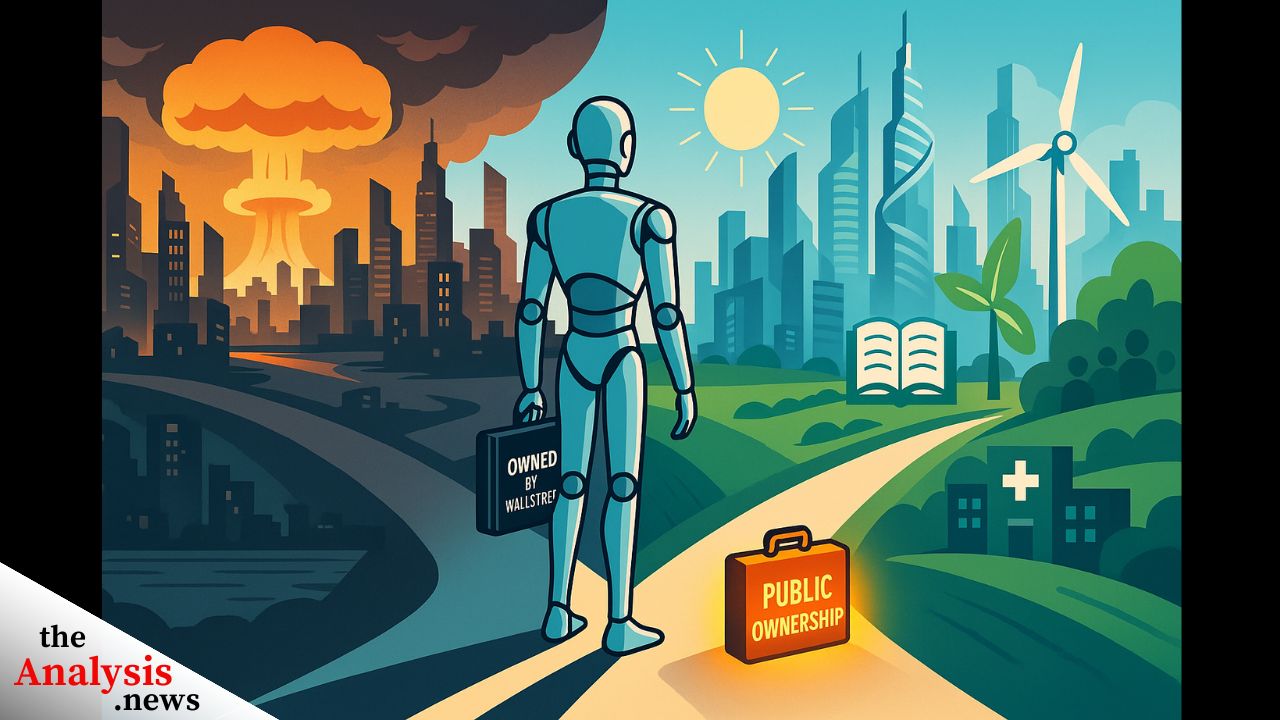




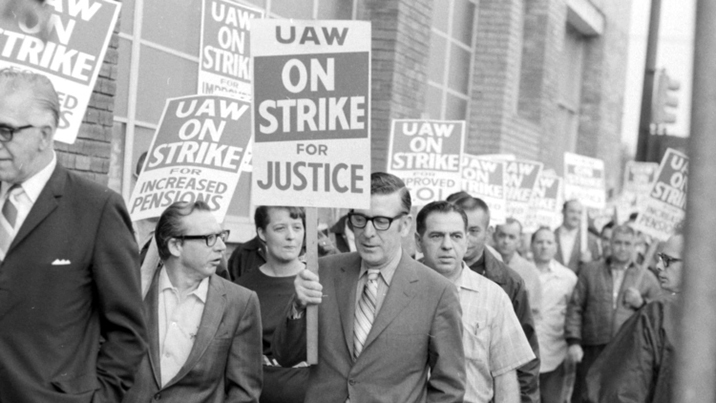
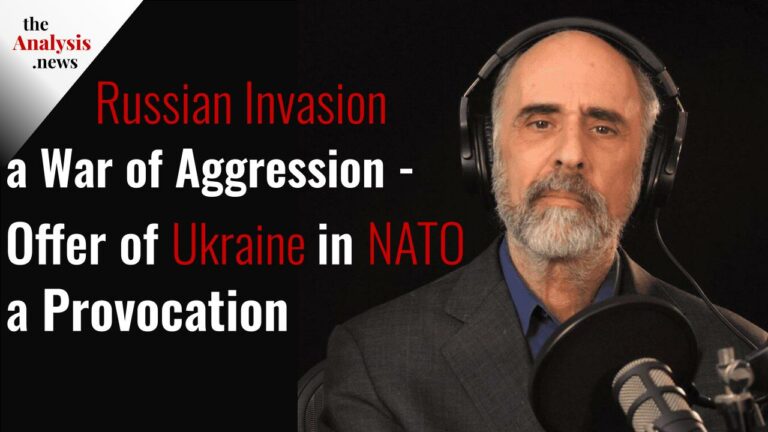

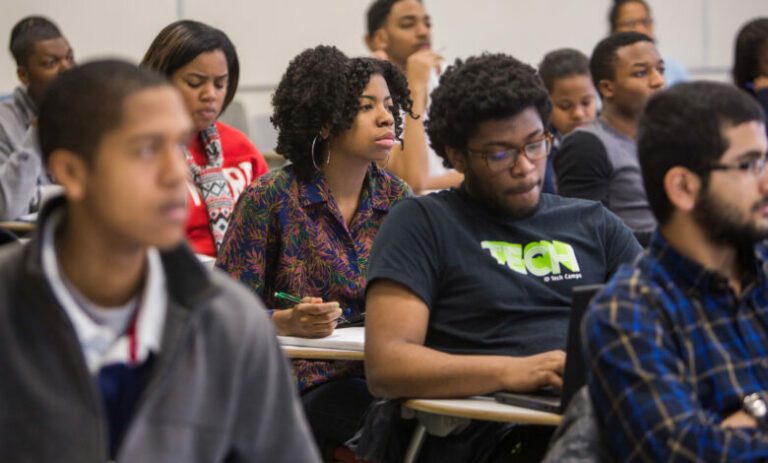
The problem is the democrats are not the solution – they are offering open boarders, unregulated crime, and grooming children. They are still controlled the the military industrial complex so definitely no longer the peace party, and big pharma, they are also pro censorship and promote jail for hate speech which is not defined. On top of all this, they just past a bill to use lethal force on Americans. The republic we grew up with no longer exists – its just oligarchs battling for control.